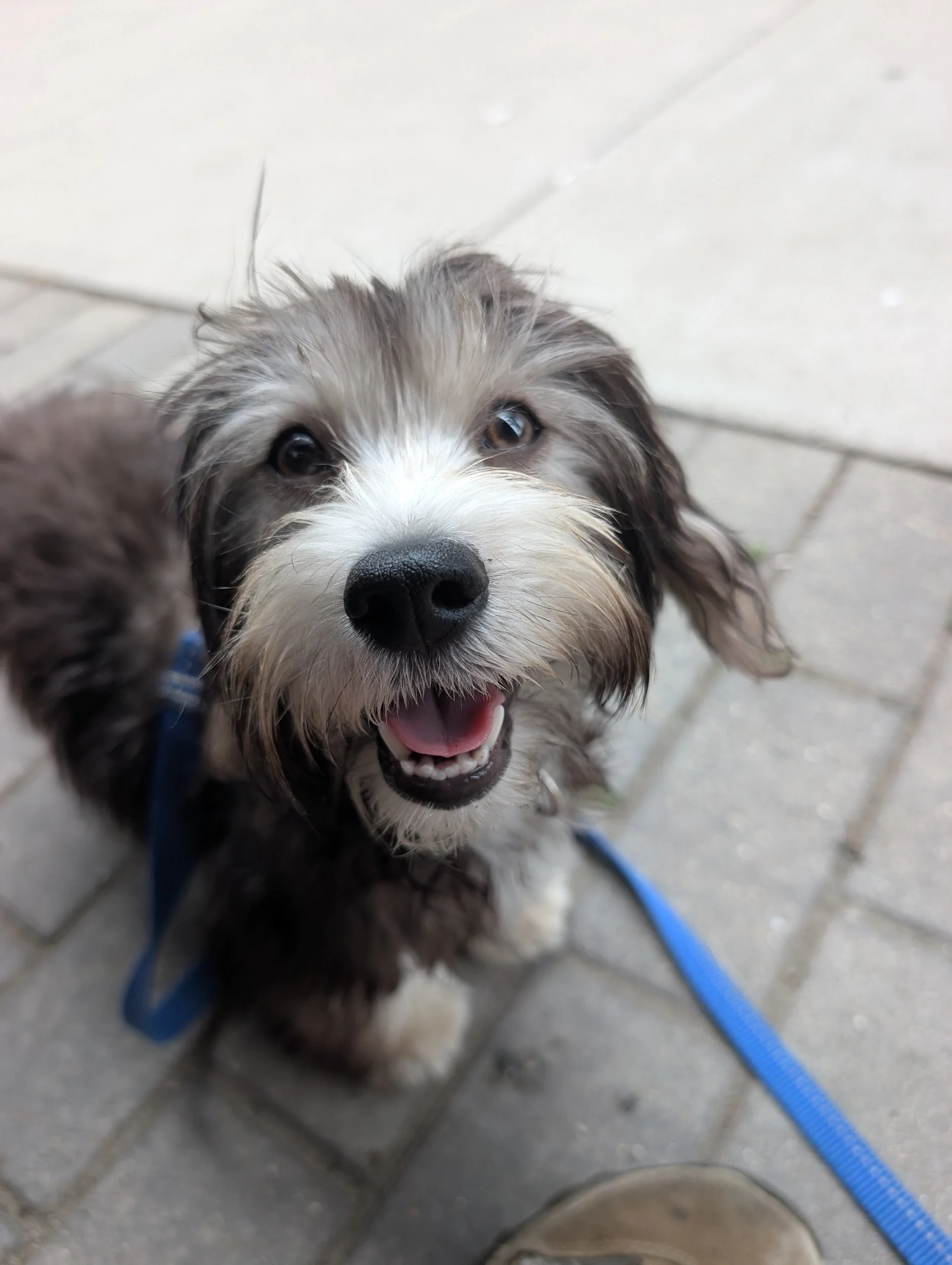Understanding Puppy Socialization: Why the First 5 Months Matter
If you’ve recently brought home a new puppy, congrats! You’re in for a wild, hilarious, and incredibly rewarding ride. One of the most important things you can do for your pup early on is help them feel safe, confident, and comfortable in the world. That’s where socialization comes in.
Socialization isn’t just about meeting other dogs. It’s about gently introducing your puppy to all kinds of new experiences, people, sounds, sights, surfaces, objects, smells, etc. in a positive way while they’re still in their critical learning period.
What Is Puppy Socialization?
Socialization is the process of teaching your puppy that the world is a safe, predictable place. This includes:
Meeting people of all ages and appearances
Playing with other puppies and friendly adult dogs
Hearing things like vacuums, trucks, or thunder
Walking on different surfaces (grass, wood floors, gravel)
Exploring new environments (vet offices, busy sidewalks, quiet parks)
It’s not about flooding them with constant stimulation, it’s about gradual, positive exposure while they’re still young and impressionable.
The Critical Window: 8 to 16 Weeks
Puppies go through a sensitive socialization period between 3 and 16 weeks old, and the most impactful part is typically between 8 and 12 weeks. This is when their brains are like little sponges, soaking up information about what’s “normal” and what’s not.
If a puppy doesn’t get exposed to enough variety during this time, they may grow up fearful of new things, or worse, reactive or aggressive. But when socialization is done right, you’re setting the stage for a dog who’s confident, adaptable, and a joy to live with.
I work with a lot of puppies at day school, and I see how powerful this time is. The pups who get regular, thoughtful socialization are more relaxed in new environments and more comfortable around people and dogs. They bounce back from surprises easier and show way more curiosity than fear.
What Socialization Isn't
It’s not just taking your puppy to a dog park (I actually don’t recommend dog parks for young pups, too risky).
It’s not overwhelming them with loud, crowded places right away.
It’s not forcing your puppy to interact if they’re uncomfortable.
True socialization means watching your puppy’s body language, going at their pace, and pairing new things with treats, play, and praise. You want your puppy to associate new experiences with good stuff.
My Favorite Socialization Tips
1. Keep it short and sweet. A few minutes in a new environment is better than an hour that becomes overwhelming.
2. Pair it with treats. Everything new = treat party.
3. Let your puppy observe. They don’t have to greet every dog or person. Watching from a distance still counts!
4. Expose them to the weird stuff. People in hats, skateboards, umbrellas, and shopping carts. These are things dogs often find scary later if they don’t see them now.
5. Enroll in a reputable puppy class. Choose one that uses positive reinforcement and includes safe off-leash play and confidence building.
Final Thoughts
Socialization doesn’t stop at 5 months, but the earlier you start, the better. Don’t wait until your puppy is “older” or “better trained.” This is the time to gently guide them through the world and help them build resilience and curiosity. And if you’re not sure how to go about it, reach out! I love helping new puppy parents get it right from the start.


